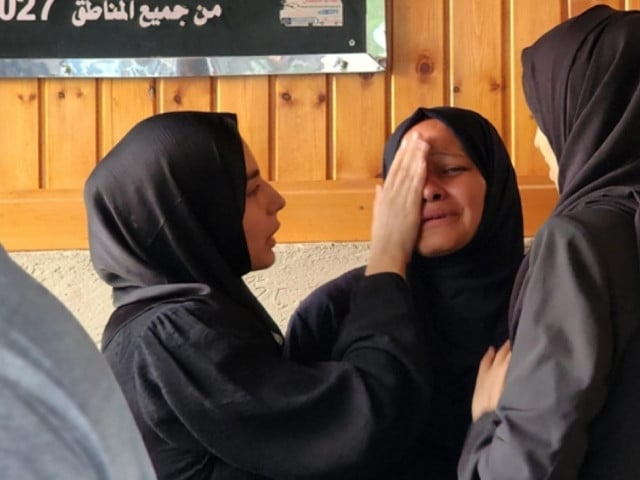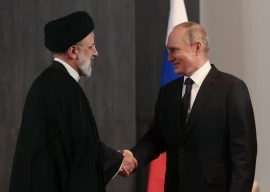
The United Nations Human Rights Office has called for urgent accountability for violations of international humanitarian law as Israel’s war on Gaza enters its second year.
Ravina Shamdasani, spokesperson for the UN Human Rights Office, expressed grave concerns over widespread non-compliance with international laws governing the protection of civilians, citing impunity as a major factor fueling ongoing violence in the Middle East.
The conflict erupted following an attack by Hamas on Israel on October 7, 2023, which left around 1,200 people dead and 250 taken captive. Israel responded with an extensive military campaign against Gaza, causing mass destruction in the densely populated enclave.
In the year since, nearly 42,000 people have been killed, and much of Gaza has been reduced to rubble. Most of Gaza's 2.3 million residents have been displaced, and essential services, including healthcare and education, have been severely disrupted.
The situation in Gaza remains dire, with civilians facing extreme deprivation and displacement.
The ongoing hostilities have also spread beyond Gaza, impacting Lebanon and other areas of the region.
Israel has launched airstrikes on Hezbollah positions in southern Lebanon, further escalating regional tensions.
Shamdasani warned that impunity for violations of international humanitarian law has contributed to a growing cycle of violence, revenge, and injustice across the Middle East.
She emphasised that without accountability, the conflict will only deepen, urging states to use their influence to push for justice and a sustainable resolution.
"Unfortunately, largely, there is impunity for the violations that have taken place," Shamdasani said in an interview with Anadolu Agency.
"This impunity has only fueled the conflict, making parties to the war more brazen in committing further violations."
She pointed to numerous violations of international law, including attacks on schools, hospitals, and humanitarian workers.
Civilians have been held hostage, displaced, and subjected to indiscriminate violence.
Hospitals and ambulances have been targeted, and humanitarian aid has been consistently blocked, exacerbating the suffering of Gaza's population.
Shamdasani underscored the critical need for the international community, especially powerful states, to take stronger action in holding the parties to the conflict accountable.
She highlighted that the right to self-defense, often cited by Israel, does not justify the violation of international humanitarian law, particularly regarding civilian casualties.
The spokesperson also addressed the role of international legal bodies, including the International Criminal Court (ICC) and the International Court of Justice (ICJ), in investigating potential war crimes committed during the conflict.
While the ICC has already requested arrest warrants for Israeli and Hamas leaders, Shamdasani stressed that individual states must also uphold their responsibilities in ensuring justice.
"The ICC is important, but the responsibility also lies with states," she noted. "Investigations must be independent, transparent, and result in accountability."
Despite the challenges posed by restricted access to Gaza, the UN Human Rights Office has continued to document violations and urged the international community to enforce compliance with international laws.
Shamdasani called on states to use diplomatic means to insist on investigations into alleged war crimes and to pursue universal jurisdiction in national courts where applicable.
As the conflict rages on, senior UN officials have reiterated the urgent need for peace.
Tor Wennesland, the UN Special Coordinator for the Middle East Peace Process, called for an immediate ceasefire and the release of hostages held by Hamas and other militant groups.
Wennesland stressed that violence will only breed more violence, and a diplomatic solution remains the only viable path to lasting peace.
The UN continues to advocate for a two-state solution based on international law, which it views as the only sustainable way to resolve the Palestinian genocide and bring peace to the wider region.
Shamdasani concluded by urging the international community to double down on efforts to uphold international law and to push for a ceasefire, humanitarian access, and the protection of civilians in Gaza.
The Israeli military is actively conducting invasion of Gaza with the twin goals of freeing the hostages and dismantling Hamas.
These operations, including ground invasions, have led to intense fighting and large-scale displacements among Gaza’s civilian population with nearly 42,000 Palestinians killed
On the other side, Hamas, particularly its armed wing, the Ezzedine Al-Qassam Brigades, continues to engage in rocket launches towards cities like Tel Aviv.
The cycle of violence and military actions continues, exacerbating the humanitarian crisis in Gaza and prolonging the conflict.

1731476617-0/Sandra-Oh-(2)1731476617-0-165x106.webp)







1730959638-0/trump-(19)1730959638-0-270x192.webp)










COMMENTS
Comments are moderated and generally will be posted if they are on-topic and not abusive.
For more information, please see our Comments FAQ